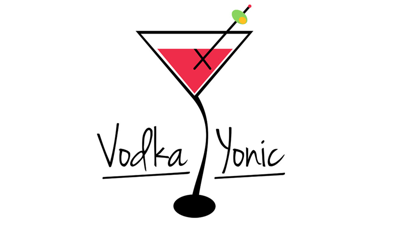Vodka Yonic features a rotating cast of female writers from around the world sharing stories that are alternately humorous, sobering, intellectual, erotic, religious or painfully personal. You never know what you’ll find here each week, but we hope this potent mix of stories encourages conversation.
This isn’t where I thought I’d be in life — defending face tattoos.
First, to clarify, when I say “face tattoo,” I’m talking about a tattoo of someone’s face on your body. Not a tattoo on your face. Second, I’m a graphic designer by trade, and the thought of putting someone’s face on living, changing skin goes against all my aesthetic instincts. Nevertheless, here I am. Deep breath.
My journey to understanding started six years ago, when my dad was diagnosed with a rare and aggressive form of lung cancer. My sister and I looked up five-year survival statistics, determined to reassure ourselves.
“Five percent,” my sister told me over the phone.
“We can work with that,” I responded.
I firmly and truly believed it.
Four months later, our dad was dead.
I remember that as the moment when my world broke. When I realized housefires, car wrecks and tragedies in general could happen to us. Of course I always knew, logically, that ill fate could befall anyone. But it had sidestepped my family for 29 years. I’d faced bullying and parental squabbles, my dad going to rehab and the deaths of grandparents, but nothing had shaken me to my core. Nothing had made me question the world. Until then.
When a parent dies, you wear it on your sleeve for a while. Your voicemail and inbox fill with messages from people all saying the same thing: “Welcome to the Dead Dad Club. It sucks.” I spent months sobbing on my way to work, tracing memories of my dad’s expressions in my mind. And one day, I realized I hadn’t cried in a while. I began to smile back at him in photographs instead of feeling my face contort into an ugly cry. Slowly, happiness crept in again. But my foundation was cracked. I was now aware that the bad could seep in.
After losing someone, you agonize about the possibility of someone else you love dying. I’m not sure that ever goes away. Then, one day, your fears are realized. For me, it was Jim Ridley — my friend and boss. He collapsed at the office. Shaking, I called his wife. “We think he had a seizure. The ambulance is taking him to the hospital.” But it wasn’t a seizure. I never saw him alive again.
When Jim died, I was 12 weeks pregnant. Already physically exhausted, I immediately went home, took a bath and crawled into bed crying. How unfair this world is. I couldn’t grasp how such a beloved man was taken from his family and friends so suddenly.
And then, eight months later, my 11-week-old son died. And that’s how I came to understand face tattoos.
I hail from the Deep South; bad tattoos run rampant there. But if we’re being honest, they’re rampant pretty much everywhere. As far as memorial tattoos go, there are the usual suspects: initials, dates, footprints, angel wings, broken hearts. Each one more cliché than the last. But the face tattoo takes the cake. These often feature the face of a beloved celebrity — Marilyn Monroe stretched across a thigh, for instance — or maybe a romantic partner. But most commonly, it’s a likeness of the tattoo-bearer’s child. A baby face on the forearm, a smiling child between the shoulder blades. I have to admit, I long scoffed at their owners. Rednecks, I thought. What would possess anyone to ever make that mistake? To subject their love’s face to the changes of their body? Sun damage. Sagging skin.
The answer? Grief.
I have spent a long time thinking achingly about any way I could keep the memory of my son alive. I wear a ring of his birthstone, a necklace with his name. I give to charities in his honor and paint our home with his pictures. I now understand the desire to make part of your body a memorial to a loved one. To want to remind the world of your child. To feel desperately that you have to keep their memory alive in any way possible.
And that’s how I came to get a face tattoo.
Just kidding.
But, I have learned to not to judge others’ grieving processes. Loss is a great equalizer: We are all putty in the grip of grief, trying to reassemble ourselves into functional humans. In order to do that, you might want to talk about your loss constantly, in which case, I highly suggest a therapist. If you don’t want to talk at all, that’s fine too. If you want to get drunk and sob over the precious few photographs you have — there are never enough photos — so be it. If you want to reproduce one of those photographs on your body in permanent ink, then to hell with it. I get it. You have earned that right.
When you have loved and lost, you don’t want to pack that experience away in a box. You want the deceased to live with you, breathe with you, and you want to carry their memory in everything you do. Maybe putting their face on your skin is the closest we can get to keeping them alive with us.





